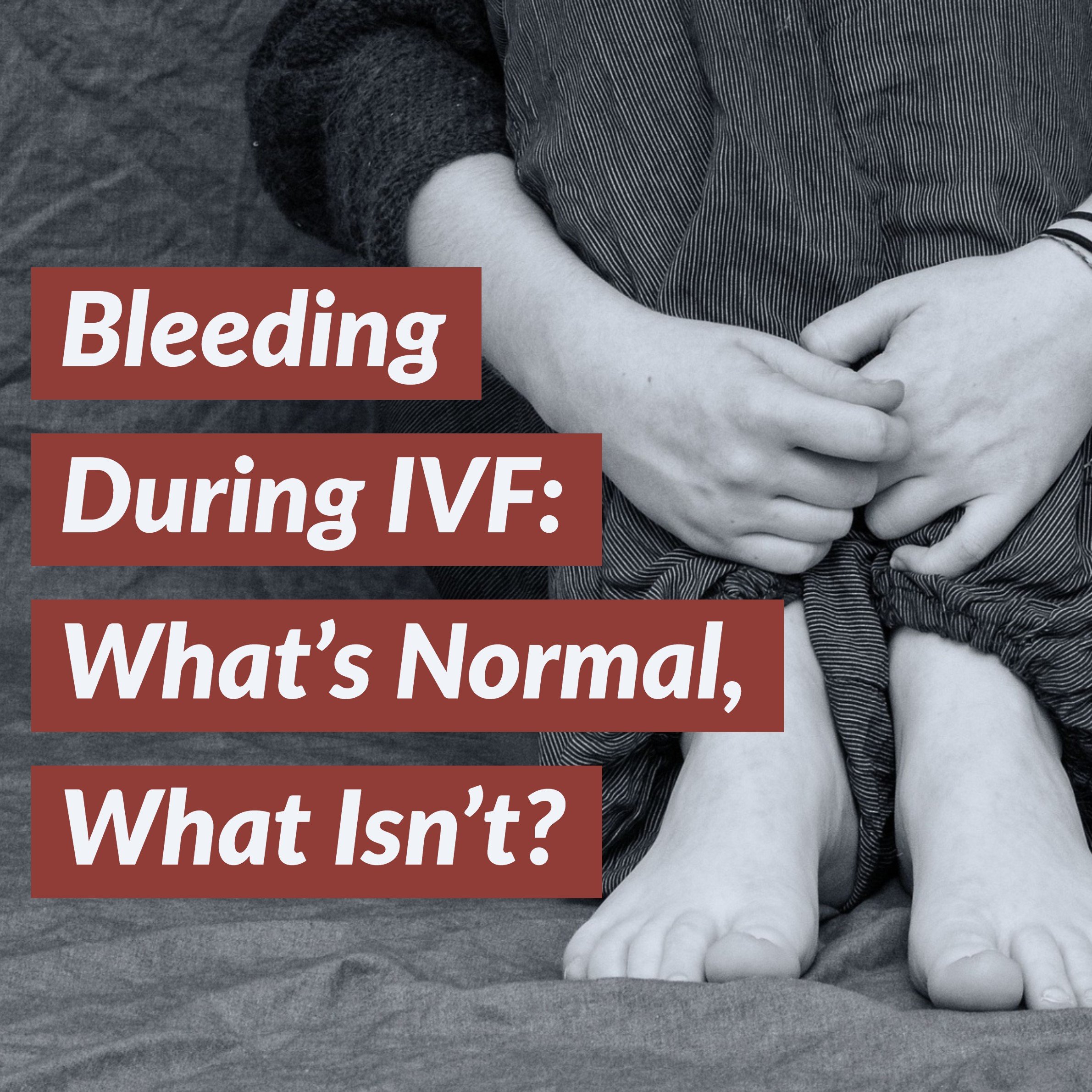

One of the most difficult things IVF patients have to deal with is the fact that there are no external symptoms or signs of what's happening inside their bodies.
Are the follicles growing well? Is the uterine lining maturing properly? Are you responding well to the medications? Are the eggs of good quality? Are the embryos implanting?
An important marker of the reproductive cycle is bleeding - and this can become a major source of stress during IVF treatment. This post explains what kinds of bleeding can happen during IVF, and what (if anything) you should do about them.
Beginning the Last Period before IVF
The start of the menstrual period is an event most IVF patients look forward to, because finally the IVF cycle is ready to commence - and you are now ready to take your best shot at having your long desired baby! You are all pumped up and ready!
You've spent a long time waiting for your treatment to begin (with waiting lists and getting appointments with busy doctors, it can take 2-6 months to actually start the IVF cycle, no matter how ready you are - and this waiting can be very stressful!)
Is the period on time? Early? Delayed? Does it look any different? If it comes too early, does this mean you'll have to cancel because the doctor is not available? If it's delayed, does this mean you doctor will have to postpone your cycle? When you are 2 days overdue, you wonder if you should ask the doctor to induce a period - or should you just keep on waiting?
Remember that the day the period starts, the quality and quantity of flow are completely unimportant! Day 1 of your cycle is just a marker which informs the doctor that you are ready to start your superovulation, that's all! The bleeding is just the shedding of the old uterine lining - and has no impact on the IVF treatment itself.
While a very early or delayed period will not affect the outcome of the IVF treatment, this can be a problem if you are travelling abroad for your IVF treatment; or if your IVF doctor does treatments by batching patients! This is why many clinics will put patients on birth control pills to regulate their cycle, in order to make scheduling the cycle easier.
You may have some spotting or bleeding after the egg collection. This is because the doctor has stuck a needle through your vaginal wall in order to retrieve your eggs. This is usually minimal, and stops very soon. Excessive bleeding is extremely unusual - and if you do experience this, you should report to your doctor.
Some women may also have some spotting after the embryo transfer. This can be very scary, but can occur if the doctor had technical difficulty during your transfer and had to manipulate your cervix. This is bleeding which comes from the cervix (the mouth of the uterus); and will not harm your embryos!
What about bleeding during the 2-week wait? This is not common, because you are taking luteal phase support with estrogen and progesterone to help support your uterine lining. This is why when bleeding occurs, thus can cause panic because you are worried that this represents the start of your period, which means that your IVF cycle has failed!
Your worst nightmare may be coming true! Women will often obsess over every drop of blood they see - and some will even imagine that they can see their fetus being expelled with the clot. However, remember that the embryos as this stage are microscopic, and cannot be seen with the naked eye!
Also, this bleeding does not always mean that the cycle has failed. In many women, this bleeding is self-limited and stops as suddenly as it started, which means we can never figure out where it came from or why. In others, it is actually a good sign, because it represents an implantation bleed.
Unfortunately, there's no way a doctor can judge what's happening because ultrasound scanning does not give us any useful information. It may be a good idea to do a blood test to check your progesterone levels; and if these are low, the doctor can increase your dose of progesterone to provide additional support to the endometrium.
If you get a period in less than 12 days after your embryo transfer in spite of your medications, you should request your doctor to test your progesterone levels 3 days after your embryo transfer in your next IVF cycle. If these are low, then he may want to change the way he is giving you progesterone by using an alternative route (by switching from vaginal progesterone to IM progesterone or vice versa).
Download our free e-book for an overview of the entire IVF process, from tests to costs. Click below to receive your copy today!

Dr. Aniruddha Malpani is an IVF specialist with a brilliant career with numerous awards, educational distinctions and prizes. Dr. Malpani completed his postgraduate degree in Gynecology from the University of Bombay in 1986. He received further training in IVF from UCSF, San Francisco, and U.S.A. As a medical student, he studied at Harvard, Johns Hopkins and Yale. He practices in Mumbai, India along with his wife Anjali. He can be contacted at info@drmalpani.com, or learn more at http://www.drmalpani.com.
Subscribe to our weekly blog digest

Entire Website © 2003 - 2020
Karande and Associates d/b/a InVia
Fertility Specialists

Comments